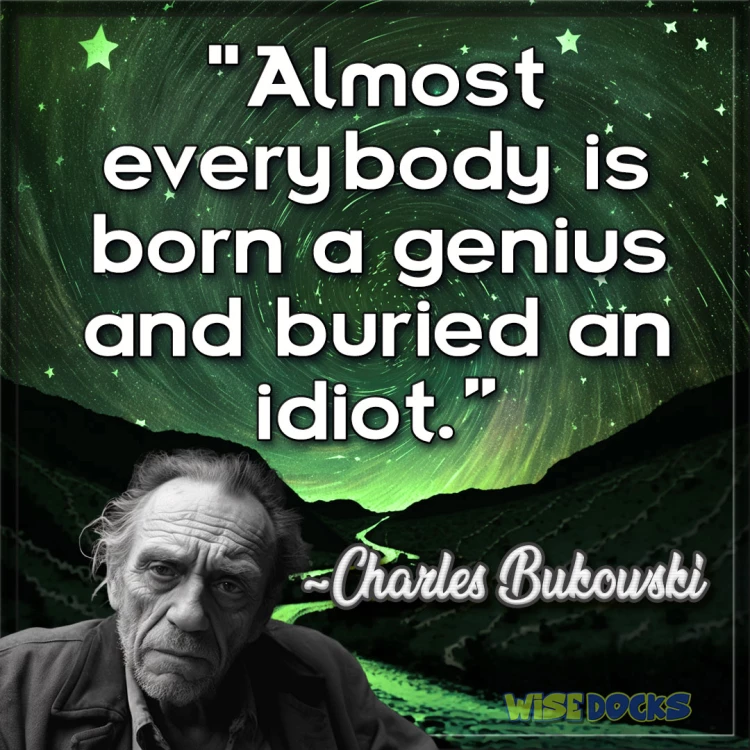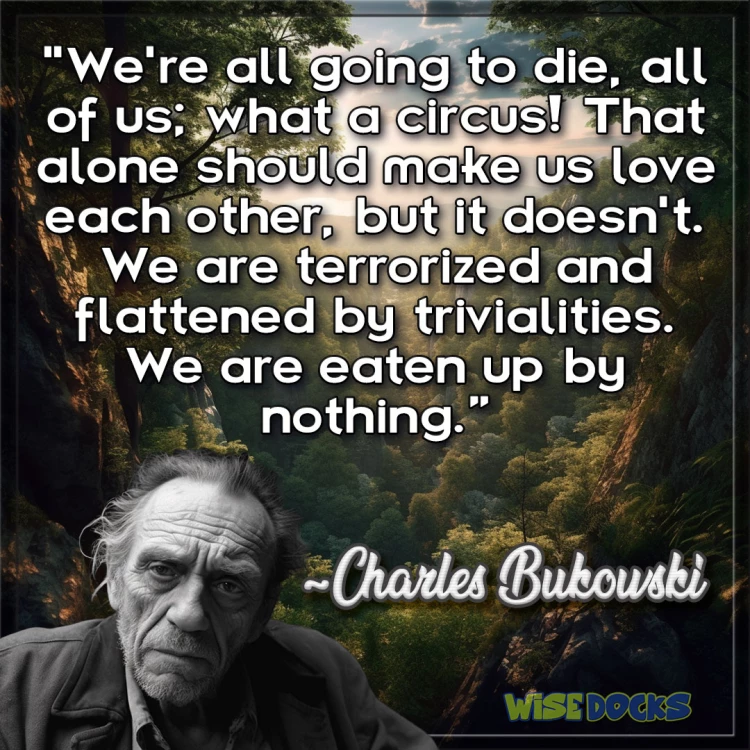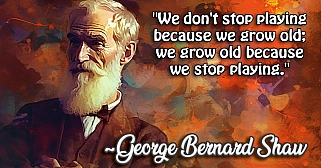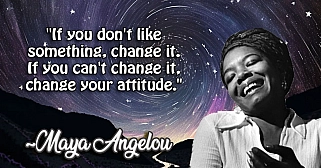Charles Bukowski: The Raw and Unvarnished Life of a Literary Maverick

Charles Bukowski
Early Life and Troubled Beginnings
Charles Bukowski was born Heinrich Karl Bukowski on August 16, 1920, in Andernach, Germany. His father, Heinrich Bukowski, was a U.S. Army sergeant, and his mother, Katharina Fett, was a native German. The family moved to the United States in 1923, settling in Los Angeles, a city that would become the backdrop for much of Bukowski's writing.

Bukowski's childhood was far from idyllic. He grew up during the Great Depression, and his father was often unemployed and abusive. Young Charles endured physical beatings and emotional neglect, which left deep psychological scars. These experiences of hardship and brutality profoundly influenced his worldview and later shaped his raw, confessional style of writing.
Bukowski found solace in books and writing from an early age. Despite his troubled home life, he was an avid reader, devouring the works of Ernest Hemingway, D.H. Lawrence, and John Fante. These authors' unflinching depictions of life and humanity resonated with Bukowski and inspired his desire to become a writer.
The Struggle for Artistic Recognition
Bukowski's path to literary success was neither straight nor easy. After graduating from Los Angeles High School in 1939, he briefly attended Los Angeles City College but dropped out to pursue a career in writing. His early attempts were met with rejection, and Bukowski became disillusioned with the publishing industry.
In the 1940s, Bukowski drifted across the United States, taking on a series of low-paying, menial jobs. He worked in factories, as a truck driver, and in various other capacities, experiences that exposed him to the gritty underbelly of American life. During this period, Bukowski also began to drink heavily, a habit that would become a central theme in his work.

In 1955, after nearly a decade of living on the fringes, Bukowski suffered a life-threatening bleeding ulcer. This near-death experience prompted him to return to writing with renewed determination. He began to submit his work to small literary magazines, and slowly but surely, his distinctive voice started to gain recognition.
Finding His Voice: The Poetry of Bukowski
Bukowski's poetry is marked by its brutal honesty, dark humor, and unflinching portrayal of life's hardships. He wrote about his experiences with drinking, gambling, and his many failed relationships with a raw, unapologetic style that resonated with readers who felt alienated by mainstream literature.
His first collection of poetry, "Flower, Fist and Bestial Wail," was published in 1960 by Hearse Press. Although it received little attention at the time, it marked the beginning of Bukowski's prolific career as a poet. He followed up with several more collections, including "It Catches My Heart in Its Hands" (1963) and "Crucifix in a Deathhand" (1965).
Bukowski's poetry often explored themes of poverty, loneliness, and the human condition. He had a unique ability to find beauty in the mundane and the grotesque, and his work was characterized by its conversational tone and accessibility. Unlike many poets of his time, Bukowski eschewed literary pretensions and wrote in a way that was direct and relatable.
The Rise of Hank Chinaski: Bukowski's Alter Ego

In 1969, Bukowski published his first novel, "Post Office," which introduced readers to his alter ego, Henry "Hank" Chinaski. The novel, based on Bukowski's own experiences working at the Los Angeles post office, was a semi-autobiographical account of Chinaski's struggle to survive in a soul-crushing job while pursuing his passion for writing.
"Post Office" was followed by a series of novels featuring Chinaski, including "Factotum" (1975), "Women" (1978), and "Ham on Rye" (1982). Through Chinaski, Bukowski explored his own life story, delving into themes of alienation, disillusionment, and the quest for authenticity. These novels cemented Bukowski's reputation as a leading figure in the countercultural literary scene.
Bukowski and Black Sparrow Press
A significant turning point in Bukowski's career came when he formed a partnership with John Martin of Black Sparrow Press. Martin recognized Bukowski's talent and offered him a monthly stipend to quit his job at the post office and focus on writing full-time. This arrangement allowed Bukowski to produce some of his most significant works, and Black Sparrow Press became the primary publisher of his books.
Martin's support and dedication to Bukowski's work were instrumental in bringing his writing to a wider audience. Under Black Sparrow Press, Bukowski published numerous collections of poetry, short stories, and novels, many of which gained critical acclaim and a loyal following.
Love, Relationships, and Controversy
Bukowski's personal life was as tumultuous as his writing. He had numerous relationships, many of which were marked by intense passion and equally intense conflict. His relationships with women were often a central theme in his work, depicted with a mix of brutal honesty and dark humor.
One of Bukowski's most significant relationships was with Linda Lee Beighle, whom he met in the late 1970s. Linda became a stabilizing influence in his life, and the couple married in 1985. Despite his reputation as a hard-drinking, womanizing misanthrope, Bukowski's relationship with Linda revealed a softer, more vulnerable side to the man behind the myth.
Bukowski's work was often controversial due to its explicit content and unvarnished portrayal of the darker aspects of life. Critics accused him of misogyny, vulgarity, and glorifying alcoholism. However, his defenders argued that Bukowski's writing was a reflection of his reality and a critique of the society that created it.
The Legacy of Charles Bukowski
Charles Bukowski's influence on contemporary literature is undeniable. His raw, confessional style paved the way for future generations of writers who sought to break free from traditional literary conventions. Bukowski's work has been translated into numerous languages and continues to resonate with readers around the world.
His writing, characterized by its brutal honesty, dark humor, and keen observation of the human condition, has earned him a place among the literary greats. Bukowski's ability to capture the essence of life's struggles and triumphs, often through the lens of his alter ego, Henry Chinaski, has left a lasting impact on the literary world.
Bukowski in Popular Culture
Bukowski's influence extends beyond literature into popular culture. His life and work have inspired films, music, and other forms of art. The 1987 film "Barfly," starring Mickey Rourke and Faye Dunaway, was based on Bukowski's semi-autobiographical screenplay and provided a gritty portrayal of his life as a struggling writer.
Musicians such as Tom Waits and Red Hot Chili Peppers have cited Bukowski as an influence, and his poems have been adapted into songs by various artists. Bukowski's distinctive voice and unfiltered portrayal of the human experience continue to inspire and resonate with creators across different mediums.
Final Years and Death
In his later years, Bukowski continued to write and publish prolifically. Despite health problems related to his heavy drinking and smoking, he remained dedicated to his craft. His final novel, "Pulp," was published in 1994 and served as a parody of the detective fiction genre, showcasing Bukowski's irreverent sense of humor until the end.
Charles Bukowski passed away on March 9, 1994, from leukemia. He left behind a vast body of work that continues to captivate and challenge readers. Bukowski's legacy is one of raw honesty, unfiltered expression, and a relentless pursuit of authenticity in both life and art.
Bukowski's Influence Continues
Charles Bukowski's life and work embody the spirit of a literary maverick who refused to conform to societal norms. His writing, filled with raw emotion, dark humor, and unflinching honesty, offers a window into the human condition and the struggles of the everyday man. Bukowski's influence on literature and popular culture is a testament to the power of his words and the enduring appeal of his unique voice.
In a world that often seeks to sanitize and conform, Bukowski's unapologetic approach to life and writing serves as a reminder of the importance of authenticity, individuality, and the courage to confront the darker aspects of our existence. His legacy continues to inspire new generations of readers and writers, ensuring that the spirit of Charles Bukowski will live on for years to come.


